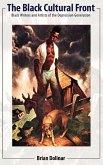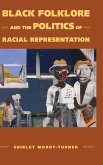How the civil rights movement changed the careers of four white American writers as well as the literary establishment The statement "The Civil Rights Movement changed America," though true, has become something of a cliché. Civil Rights in the White Literary Imagniation seeks to determine how, exactly, the movement affected four iconic American writers: Robert Penn Warren, Norman Mailer, Eudora Welty, and William Styron. Each of these writers published significant works prior to the Brown v. Board of Education case in 1954 and the Montgomery Bus Boycott that began in December of the following year, making it possible to trace their evolution in reaction to these events. The work these writers crafted in response to the upheaval of the day, from Warren's Who Speaks for the Negro?, to Mailer's "The White Negro" to Welty's "Where Is the Voice Coming From?" to Styron's Confessions of Nat Turner, reveal much about their own feeling in the moment even as they contribute to the national conversation that centered on race and democracy. By examining these works closely, Gray posits the argument that these writers significantly shaped discourse on civil rights as the movement was occurring but did so in ways that--intentionally or not--often relied upon a notion of the relative innocence of the South with regard to racial affairs and on a construct of African Americans as politically and/ or culturally naïve. As these writers grappled with race and the myth of southern nobility, their work developed in ways that were simultaneously sympathetic of, and condescending to, black intellectual thought occurring at the same time. Jonathan W. Gray, Brooklyn, New York, is assistant professor of English at John Jay College, CUNY.
Hinweis: Dieser Artikel kann nur an eine deutsche Lieferadresse ausgeliefert werden.
Hinweis: Dieser Artikel kann nur an eine deutsche Lieferadresse ausgeliefert werden.








